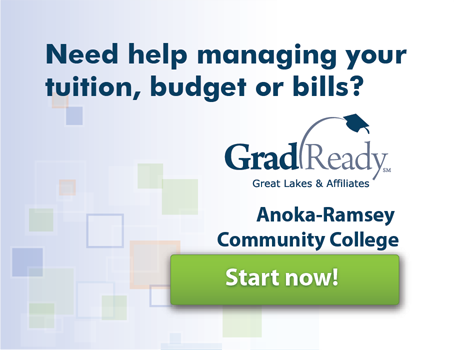This program is designed to provide eligible Minnesota residents a tuition-free pathway for earning a certificate, diploma, associate’s degree, and bachelor’s degree in high-need careers. Funding comes from the State of Minnesota and is awarded to eligible students after grants and scholarships have been paid.
You must be enrolled as a degree-seeking student in a program that leads to a career in one of the following high-need areas:
- Healthcare: High-need programs on your campus may include nursing, medical assisting, surgical technicians, healthcare social workers, EMTs, paramedics, dental assistants, dental hygienists, and substance abuse and mental health counselors.
- STEM: High-need programs on your campus may include software development, software analysts, engineers, web developers, statisticians, and agricultural workers.
- Business: High-need programs on your campus may include accounting, financial management, auditors, human resource managers, bankers, and project managers.
- Industry and Technology: High-need programs on your campus may include machine tool technologists, operations managers, HVAC technicians, front line supervisors, plumbers, construction managers, electricians/electrical line workers, heavy duty mechanics, welders, automotive service technicians, and auto body technicians.
- Education: High-need programs on your campus may include early childhood educators, childcare workers, school counselors and social workers
- Public service: High-need programs on your campus may include law enforcement officers, probation officers, firefighters, and public administration
You must meet ONE of the following requirements:
- Have a Family AGI* reported on FAFSA or State Aid Application of less than $100,000 and have worked in a critical industry listed in Executive Order 20-74 at least part-time between March 1, 2020 - December 31, 2021; OR received unemployment benefits between March 1, 2020 - December 31, 2021
- Have a Family Adjusted Gross Income (AGI)* reported on FAFSA or MN Dream Act Application of less than $50,000
*Family AGI for a dependent student includes parent and student AGI and for an independent student it includes student and spouse AGI.
Other Eligibility Criteria:
- You first enrolled during the 2021-22 or 2022-23 school year OR you are returning to college and have not been enrolled at any college in the last three semesters
- Meet the Minnesota residency criteria
- Not have already earned a baccalaureate degree
- Not in default on a state or federal student loan
- Not on SAP/FA Suspension
Student eligibility for the grant will be determined every semester. You will need to fill out the FAFSA each year. A student who receives a grant one semester is not guaranteed to receive funding for the next semester. Eligibility is subject to the availability of funds and any changes in your enrollment, FAFSA, or other financial aid may change the amount you receive each semester.
For more details, please visit http://www.ohe.state.mn.us/sPages/FTG.cfm.
If you are eligible for a Minnesota Future Together Grant, your college will contact you with an award amount or additional questions to determine your eligibility.
If you do not receive a communication from your financial aid office but believe that you are eligible for the spring term, please send us an email at financialaid@anokaramsey.edu.







